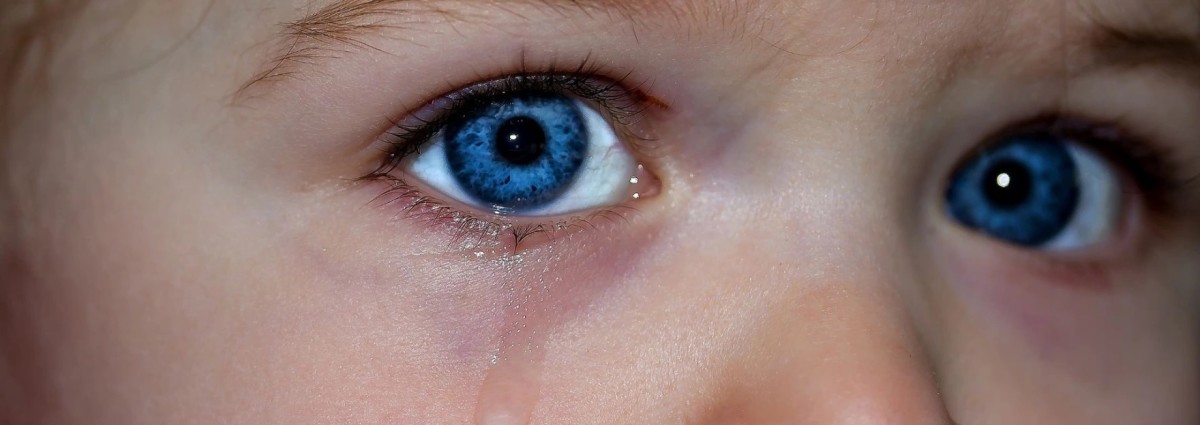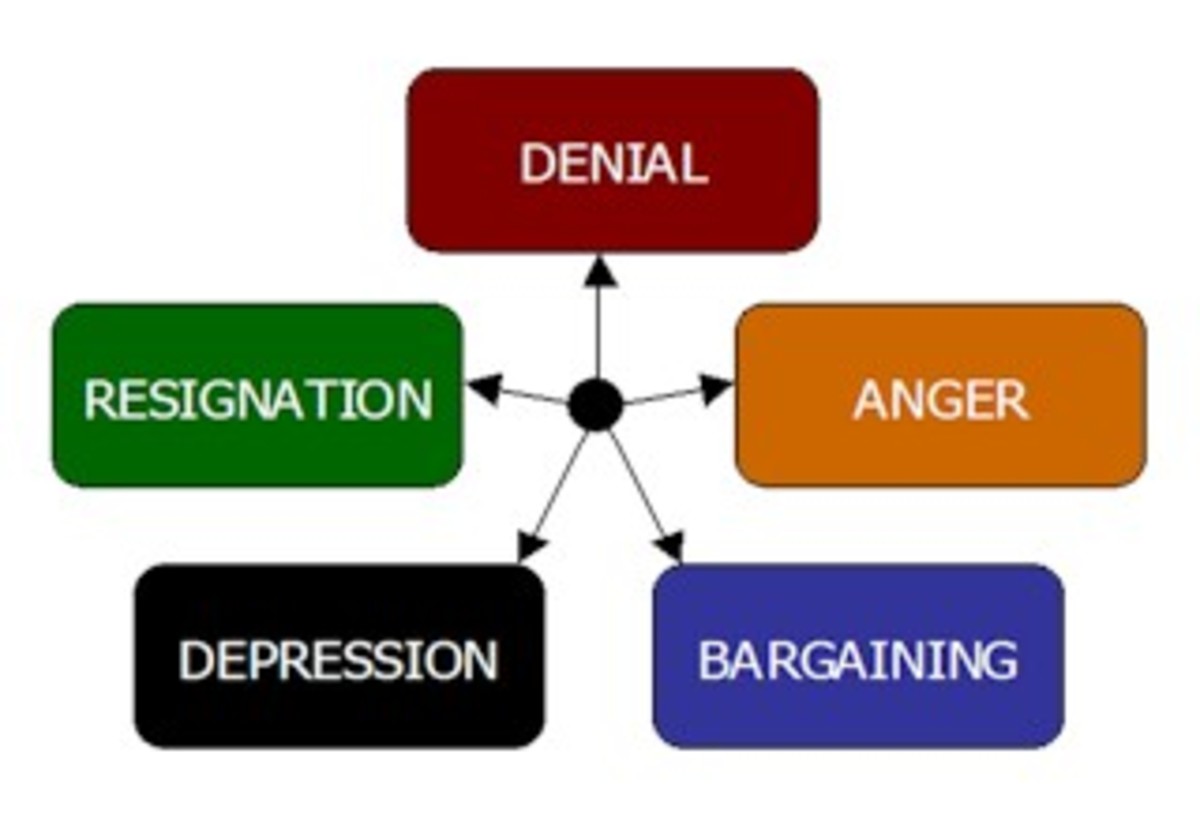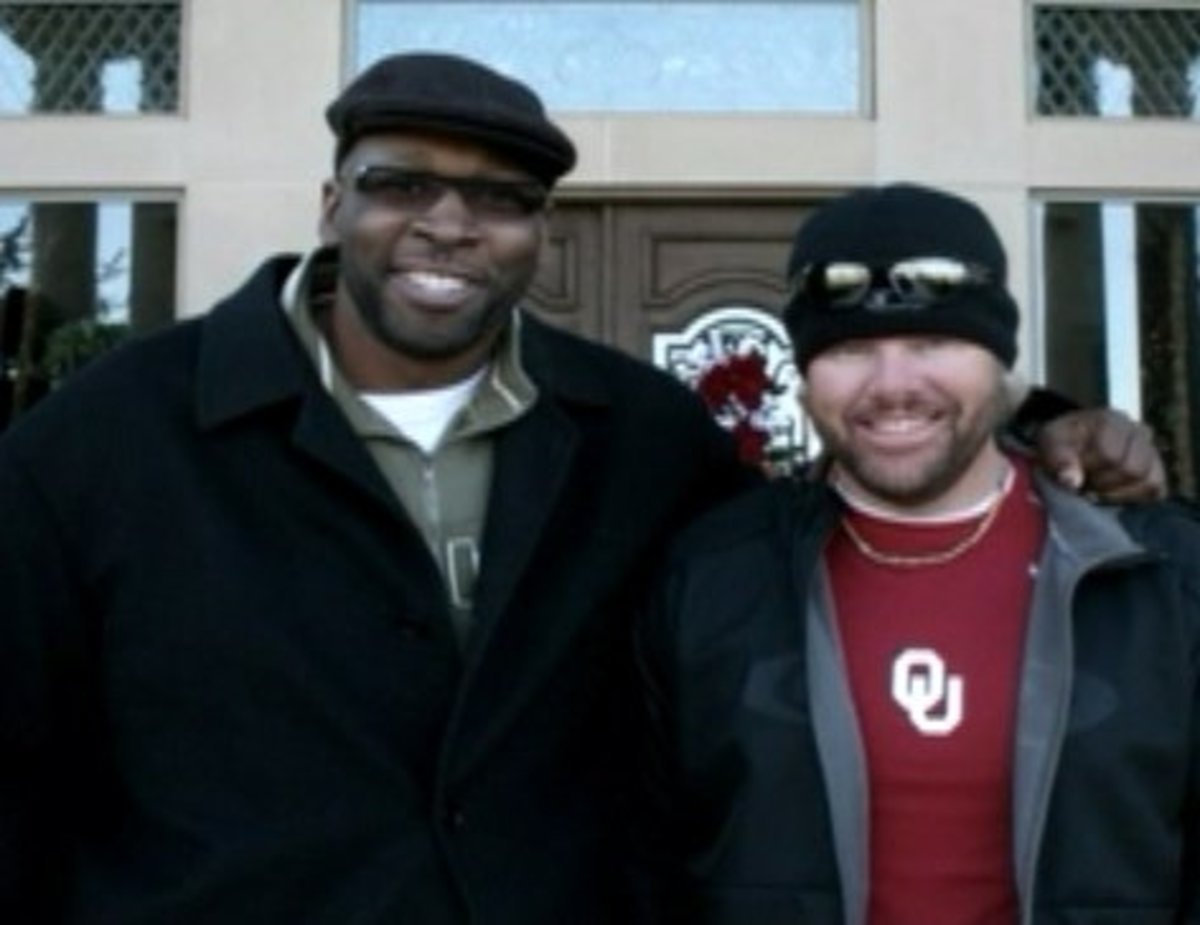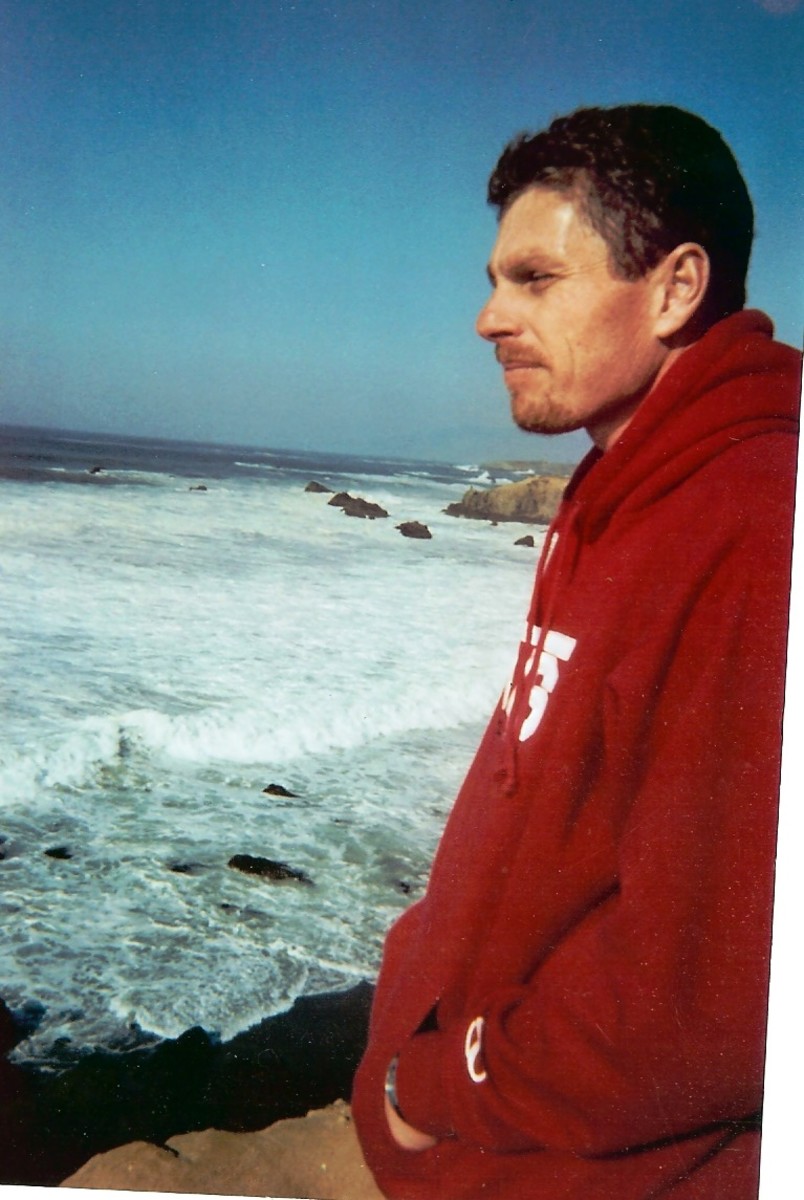Bereavement: Ways to Cope to Get to the New Normal After the Loss

Surviving Loss
“They” say you will be happy again some day.
“They” say time will heal things or “this too shall pass.” And you probably say, “YOU are full of baloney (or worse.)”
Some losses are little daily don’t-sweat-the-small-stuff experiences. Others are devastating.
I recently encountered a description of healed life after bereavement called “the new normal.” This expression acknowledges that it will never be the same, but it can be okay and eventually good.
Dealing with Bad Change
In the 1960’s, Elisabeth Kübler-Ross, M.D. published research on how terminally ill people deal with the news of their imminent passing. Her book for lay people, On Death and Dying, is still used to educate professionals working in hospice and other health fields.
Although her original findings and way of organizing the process focused on preparing for one’s own death, the emotional process seems be consistent for anyone adjusting to a serious, chronic bad change. For example, a diagnosis of infertility, the loss of a limb, or the death of an important person in your life can all be devastating.
Five Stages of Kubler-Ross
Kübler-Ross identified grieving people processing the huge loss in five probable steps (though some people may not go through all five.) Her model acknowledges that someone can cycle through the stages in various orders and have them ebb, flow, and return.
It is a construct – a way of thinking - about the adjustment period. At the moment, there are no lab tests to indicate whether or not, or in which stage a human is processing.
The five stages are:
1. denial,
2. anger,
3.bargaining,
4. depression, and finally
5. acceptance.
For someone in bereavement, it may be very nurturing to recognize that these sorts of thoughts are possible and rather common. One can give themself permission to feel these ways.
Denial
Examples of the denial thoughts are “No, that didn’t happen. It couldn’t have happened. It’s impossible. Quit messing around with me; it’s not funny.”
Anger
The anger thinking is often directed at a Supreme Being or at the person who left. Anger with God or Fate might be “Why did you let this happen? If you are so good and compassionate, why did you do this to me? And to the kids? You don’t know how to run the world – that was a good person you took away. If you want to know who to kill off, I’ll tell you who.” Anger at the person who left could sound like “Why did you do this to me? Why were you so stupid as to get yourself into the accident (illness, situation). I am so angry that you left me holding the bag on my own.”
Bargaining
The bargaining thought process is also directed at the Supreme Being or Fate with a let’s make a deal proposition to turn back the hands of time or to change a health diagnosis. For the latter, it can also be the plea for a miracle. Examples of this stage are “If you let me get pregnant, I’ll volunteer at the Food Pantry every month.” “If you bring her/him back, I’ll go to ________(fill in the name of organized religion) services every week. If you let me live, I’ll give ten percent of my income to charity. If I go to the sacred shrine and fast, you must heal me.”
Depression
Depression thinking may sound like “This is too painful too bear. I am without hope.”
Acceptance
Acceptance thinking does not necessarily occur as the last step. It can pop in and out of one’s conscious thought throughout the grieving. Examples are “Ok, now I am single.” “ Now I am alone; I must take on this list of tasks.” “If I really am blind forever, I will start to learn how to eat, cook, get around. Other people have done it, therefore I can do it.”
Helpful: The "New Normal"
Heavy news coverage of the Kyle Pagerly local tragedy included an article describing other police widows reaching out to console and support his widow Alecia.
An expression they used, “the New Normal,” is enlightening.
The gist of this mantra is that one can and WILL be happy again but not in the same way.
It almost predicts a metamorphosis into a new person with alternate – neither better nor worse – ways of enjoying life. I believe this philosophy dovetails and complements the acceptance stage of the Kübler-Ross construct extremely well. To me, it allows for remembering the prior life and the loss, yet also acknowledges that someone has moved on.
What If There Is No More Happiness?
Concurrent with the Pagerly tragedy, our newspaper ran a nationally syndicated column which addressed grieving.
It discussed situations in which a bereaved person (especially a surviving spouse) is subtly pressured by the family to remain in grief mode – sort of as the official family griever/rememberer. This is a pressure that no one deserves.
What is a person who does not move out of bereavement? The blunt conclusion is that if an individual forever pines and stays stuck in unhappiness, then two people have died instead of one.
As raw and heartbreaking as loss and grieving are, I do not think it is the Divine Being’s plan for two to die.

My Prayer for All
I wish and ask that we can learn our life lessons without harm to ourselves or others. If we must experience pain, I ask the Divine Being of Goodness to make it of the cut finger intensity, rather than catastrophic loss. Please.
Nonetheless, mortal life for some of us humans includes a measure of bereavement.
Perhaps these ideas about stages of adjustment and a new normal life with happiness will help.
For Further Reading
http://www.deathreference.com/Ke-Ma/K-bler-Ross-Elisabeth.html
http://www.businessballs.com/elisabeth_kubler_ross_five_stages_of_grief.htm
An article disagreeing with the Kubler-Ross model:
New Ways to Think About Grief. Ruth Davis Konigsberg, 29 January, 2011, Time Magazine. at http://www.time.com/time/magazine/article/0,9171,2042372-2,00.html
This content is accurate and true to the best of the author’s knowledge and does not substitute for diagnosis, prognosis, treatment, prescription, and/or dietary advice from a licensed health professional. Drugs, supplements, and natural remedies may have dangerous side effects. If pregnant or nursing, consult with a qualified provider on an individual basis. Seek immediate help if you are experiencing a medical emergency.
© 2011 Maren Elizabeth Morgan








